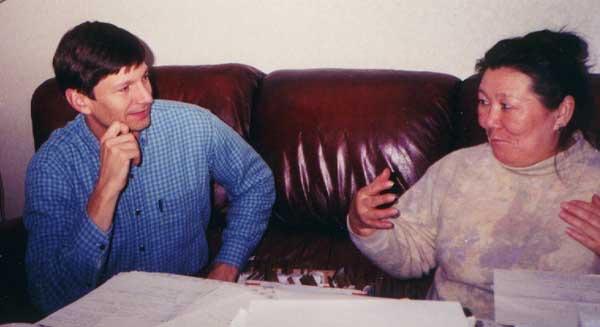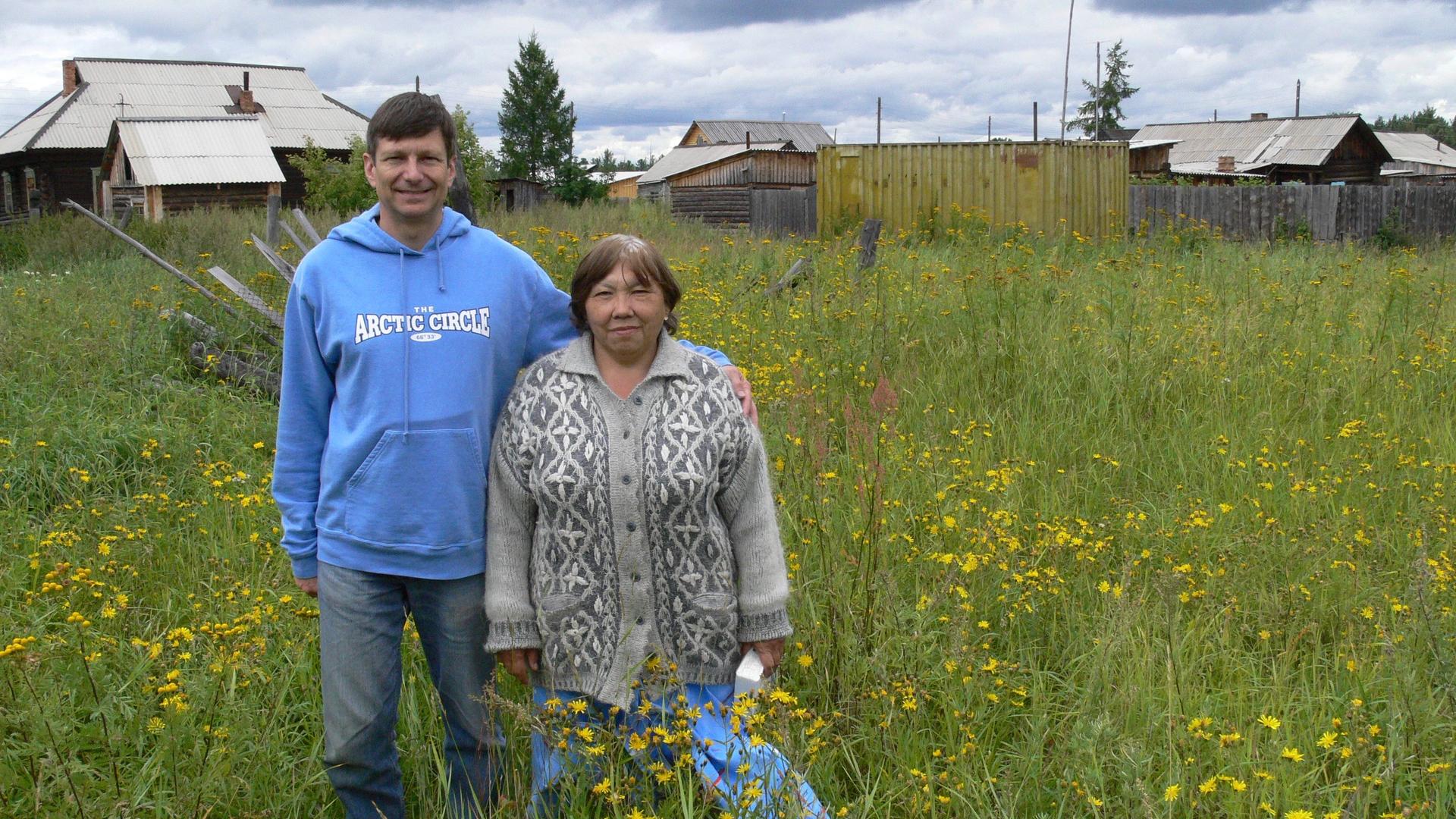Is this remote Siberian language an ancestor to Navajo?
Linguist Edward Vajda with a Ket woman in her home village in Siberia, Russia.
Edward Vajda believes he knows where an entire family of North American languages came from.
Vajda, a historical linguist at Western Washington University, spent several years in Russian Siberia learning Ket, a language so obscure that most of its own tribe no longer speak it.
In this epsiode of The World in Words, Vajda tells Alina Simone that he believes he was the first linguist from North America to meet Ket people or hear the language spoken.
But he had to be patient. This part of Siberia was closed to outsiders when it was part of the Soviet Union. Even today, it takes days to get to.

"I sometimes told [them] I was from America," Vajda says. "But some people thought that was maybe just another village somewhere out there."
There are apparently very few fluent speakers left in the Ket homeland.
To find out how Vajda connected the Ket language to Navajo and other Athabaskan languages — and how recent research appears to support that — listen to the podcast.
Podcast Contents
00:10 Nina and Patrick play Guess the Language.
2:00 Who walked the across the Bering Land Bridge? And when?
4:50 Is Ket related to Sumerian? Basque? A Caucausus language?
6:20 Alfredo Trombetti's theory of a native American link.
7:45 Is Ket a tonal language?
9:10 "They didn't really accept that I was a foreigner."
9:30 Similarities with Athabaskan languages.
10:00 And tell-tale patterns of dissimilarites.
11:18 Skepticism from a Russian linguist.
12:16 A new genetic study finds no link…
12:50 …then reverses itself…and proposes a more recent migration from Siberia.
You can follow The World in Words stories on Facebook or subscribe to the podcast on iTunes.
